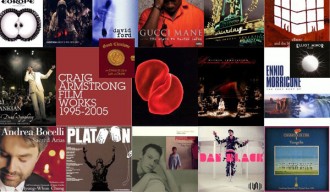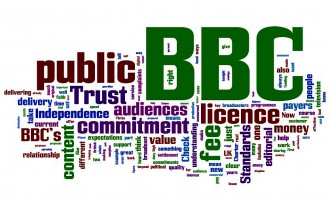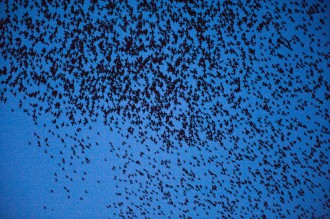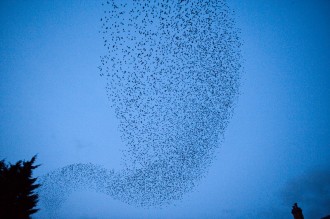Editor’s Blog: 2010
1 March 2010
Last week I decided that Sunday night’s radio playlist and presentation format would be different. Now we’ve always been pretty unique in the way we create playlists in that I usually select from album tracks (rather than just single releases), and will play songs from a wide range of genres in a single show. I’ll also play up to three songs before breaking for a chat. Last week I received Serj Tankian’s live, philharmonic version of his first solo album, ELECT THE DEAD. It promoted the thought that it would be interesting to mix and match modern orchestral sounds with rock, folk, rap, R&B, operatic and pop, while only breaking off a couple of times (to remind listeners it was a live show and to go to Shakenstir for full details of the playlist). The Shakenstir show is fundamentally about music and not the presenters, and usually I play around 22 songs over a two-hour period, but last night I played 34 songs before JJ took over the show for the third hour segment. It seemed to work really well and the seamless flow of music showed just how well the right songs from different genres, including modern orchestral pieces, can work together. I suppose it’s a bit like the best modern furniture sitting well alongside the best antiques. During the playlist compilation process I re-discovered the genius of Craig Armstrong, Philip Glass and Ennio Morricone’s movie soundtrack writing/arranging, and William Orbit’s gorgeous PIECES IN A MODERN STYLE - all fitting in beautifully with the wide range of popular music selected. For me, it was an excellent example of the benefits of being trusted and given a free hand to innovate - nothing ventured, nothing gained. And many thanks to JJ whose vast production skills made it all happen without a hitch.
BBC’s Today morning news show has started a short series of investigations into attitudes towards the burdgeoning BBC, following the reveal of its management plan to cut back on digital radio channels and huge website. At least part of the BBC’s problem is its contempt for ‘less is more.’ JJ told me last night that its Radio 6 digital music channel costs £6 million a year to run. Now I understand that quality server capacity to allow traffic of over 400,000 is not cheap, however, the question has to be asked: Where is this money going? My guess is that £1million is more than enough to run a digital station which is actually quite easy to operate from a single sound desk in a small room, given a decent level of relatively inexpensive equipment, and presenters earning no more than £30,000 per annum, creating their own shows with a single techie available to do the clever bits for each show. What’s been outlined in the leak is no more than a fig-leaf when what’s really needed is a root and branch review of the whole BBC corporation, and its impact on national broadcasting generally. The government and OFCOM also needs to examine the national picture, the changing needs and habits of listeners, and the influence of the BBC, especially in the area of popular music and the Internet. While the ‘commercial’ broadcasting scenario should be considered in this review, to me, it’s far from being a prime consideration for a sector that is its own worst enemy and totally lacking in adventure and innovation. The BBC is itself now a major commercial operator when one considers BBC Worldwide’s income of close to £1 billion, and the thinly disguised ‘product placement’ that exists in programmes like ‘Later’ with Jools Holland flashing CDs around as though there was no tomorrow, and becoming increasing mainstream in output… Radio 1 and Radio 2 are undoubtadly the country’s major influences on CD sales through their playlist policies, and airtime devoted to the select few.
But the most important sector worth considering is ‘public broadcasting’ and its potential to provide real and tangible alternatives to mainstream commercial broadcasting. For example, the role of community and college radio stations and their potential to take the place of BBC regional radio. You only have to look at countries like the USA (where the sector is called ‘Public Radio’) to fully recognise the potential of public broadcasters, able to attract a degree of commercial sponsorship, to augment and to compete with fully commercial broadcasters. There are around 120 community radio stations covering the whole of the UK, who are starved of cash and run largely by volunteers. Imagine the difference a portion of the BBC licence fee would make to allowing these stations to grow, based on offering real alterternatives to the mainstream, while allowing new presenting and producing (paid) talent to blossom, and to widen their offer via the Internet. The BBC could make a real and valid contribution here, for example, by sharing its news gathering and presenting services in addition to supplying technical expertise and server capacity.
The BBC also has (or should have) the responsibility of assisting new artistic talent learn and grow as part of its public remit. For example, there are numerous highly talented musicians who don’t get a look-in when it comes to radio and TV airtime. We play them on Shakenstir, week-in, week-out, and more often than not they represent higher quality than a lot of what’s heard on the BBC and commercial channels. It is now not unusual for artists to move over to the USA to seek public recognition and income, due to total frustration with UK broadcasters. Also ask the question: In paying what the BBC does to its ’stars’, how has it influenced the price the market in general has to pay?
Consider this: The contract of a single BBC presenter would cover the current annual cost of running Radio 6, which is pretty certain to be axed to save money… But what do these highly paid presenters actually do on Radio 1 and 2? They talk utter crap and play music selected by others. It’s one very bad joke. Salaries should be capped at a fraction of what they are paid, and they should be made to select their own music. Frankly, its an expensive and awful mess. But I would go further. Rather than scrap Radio 6, I would amalgamate Radios 1 and 2, and take a serious look at the number, remuneration and responsibilities of those employed. That would be a substantial and meaningful start for BBC management. My second move would be to offer a new service which offers financial and technical support for community stations and new/existing digital and Internet broadcasters. My third suggestion would be to overhaul the committee decision-making structure at the BBC, and rid itself of A,B, C playlists - it’s lazy and too biased to those labels with the most commercial and artistsic (hype-wise) clout.
As one of the UK’s leading music websites, we cannot compete with the BBC’s huge and growing website, broadcast and print media for artist access. But we offer an alternative and independent viewpoint, and access to the worldwide Internet for UK talent we feature. A tiny slice of the money the BBC receives each year could help us grow our service and add an Internet radio service where the world can listen to the best the UK has to offer. The BBC could help here, and by providing financial and technical assistance will make a major contribution to selling UK-based music. This way, everybody wins and at the most modest cost. What I’m really saying here is that a little pruning here and then will make no real difference to anything, while a more radical, longer-term, root and branch change could make a huge difference.
I’ve gotta tell you about the birds, Starlings in fact. For the past few weeks I’ve noticed thousands of them gathering in the distance, something I have never seen befor here in Wrexham. It starts to happen at dusk, when the battalians head over across my roof towards their central meeting place, which it turns out is the Local 24-7 Spar store. So yesterday evening I grabbed my camera and headed towards where the birds were gathering. I parked in the Spar car park and witnessed the incredible sight of thousands of Starlings swaying and twisting en-masse in the sky.
One thing I didn’t consider was the poo-factor, and ended up with a car full of it. It was a wondrous sight though and I managed to take some decent snaps. I was told by one onlooker that the birds may have got lost, a bit like the BBC really…
Page: 1 2 3 4 5 6 7 8 9 10 11 12 13 14 15 16 17 18 19 20 21 22 23 24 25 26 27 28 29 30 31
|
|

|

Midlake |
LATEST GALLERY IMAGES

Where Israel Goes, Misery Follows 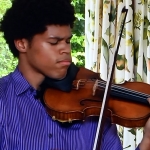
The Kanneh-Masons |
|
|


